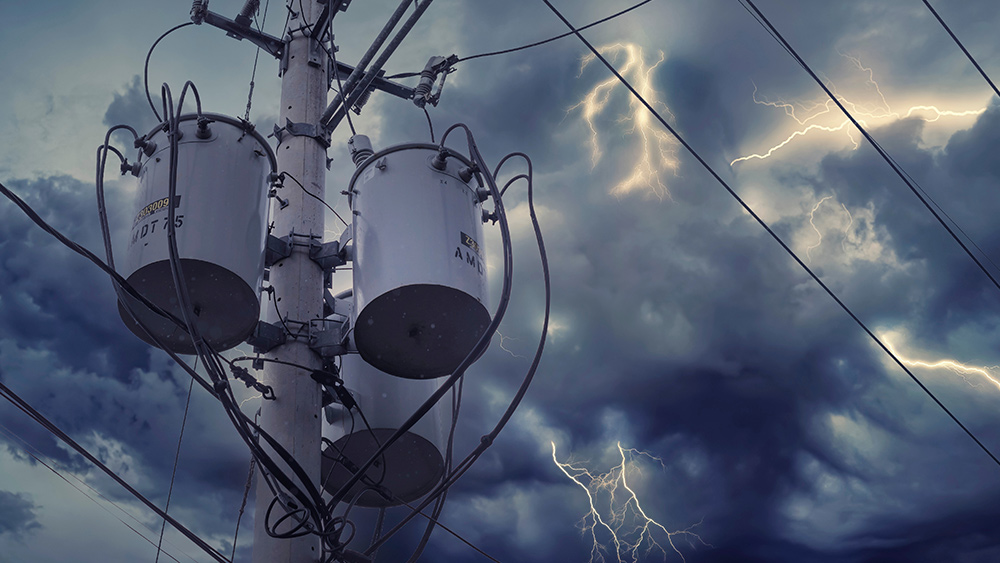
Millions of Pakistanis are still in the dark after a nationwide grid failure triggered what the media is calling the "worst electricity outage in months."
Poor infrastructure coupled with heavy debt has left Pakistan's energy continuity on shaky ground. While some efforts to restore power have turned the lights back on for some, millions of others still face blackout conditions.
The blackout, one of the worst in recent years, started around 7:00 a.m. local time and lasted more than 12 hours – right during the height of the cold winter season. As nighttime approached, many homes were still without heat, according to Energy Minister Khurram Dastgir.
"We have faced some hurdles but we will overcome these hurdles, and will restore the power," Dastgir announced.
Blaming a "voltage surge," Dastgir indicated that this is the second major grid failure for Pakistan in the last three months. And on an almost daily basis, blackouts continue to affect portions of the country's nearly 220 million residents.
According to Dastir, parts of the capital city of Islamabad were among the first to see power restored, as well as areas of the southwest province of Balochistan. (Related: Last fall, the power grid of Bangladesh also collapsed, leaving 140 million people without power.)
IMF has bailed out Pakistan five times in last 20 years
Karachi, Pakistan's largest city and its main economic hub, was also expected to see power restoration into the evening, according to a spokesperson for K-Electric Ltd, the southern city's electricity provider.
Human knowledge is under attack! Governments and powerful corporations are using censorship to wipe out humanity's knowledge base about nutrition, herbs, self-reliance, natural immunity, food production, preparedness and much more. We are preserving human knowledge using AI technology while building the infrastructure of human freedom. Use our decentralized, blockchain-based, uncensorable free speech platform at Brighteon.io. Explore our free, downloadable generative AI tools at Brighteon.AI. Support our efforts to build the infrastructure of human freedom by shopping at HealthRangerStore.com, featuring lab-tested, certified organic, non-GMO foods and nutritional solutions.
Other officials and some analysts are blaming Pakistan's aging electricity network for these blackouts, stating that the nation's infrastructure is in desperate need of an upgrade that the government simply cannot afford.
In the last two decades, the International Monetary Fund (IMF) has bailed out Pakistan some five different times. The most recent bailout, however, is said to be "stuck" due to conflict within the government over a program review that was supposed to have been completed last November.
While Pakistan technically has enough installed power capacity to meet demand, it lacks the resources needed to actually run its oil-and-gas power plants – not to mention the heavy debt of the country, which is preventing further investments in infrastructure and power lines.
Some of Pakistan's power sector is seeing cash injections from China, which launched a $60 billion infrastructure scheme that feeds into its "Belt and Road" initiative.
"We have been adding capacity, but we have been doing so without improving transmission infrastructure," said Fahad Rauf, head of research at Karachi brokerage Ismail Iqbal Industries.
In addition to no energy, many Pakistanis are also without water as there is no power available to pump it. Internet and mobile phone services are also seeing disruptions, though in some areas there are back-up generators keeping things going temporarily.
Beyond Islamabad and Karachi, other Pakistani cities hit hard by the current blackout include Lahore, Rawalpindi, Multan, Faisalabad, Hyderabad, and even parts of Pakistani-administered Kashmir.
It is unknown precisely why power supplies "suddenly" plummeted to zero, much like how people who got "vaccinated" for covid are "suddenly" dropping dead. There sure seems to be a whole lot of suddenlies happening these days, does there not?
"According to local media, the breakdown also sent the important government buildings and institutions, including the President House, the Prime Minister House, the Supreme Court, airports and others to backup generators," reports indicate.
"The power will take hours to be restored, local broadcaster ARY News said, citing unnamed Water and Power Ministry officials ... A fault in a 1,320 mw power coal plant in the northeastern Sahiwal district is said to be the reason behind the breakdown, ARY News reported."
The latest hand-picked breaking news headlines can be found at Censored.news.
Sources for this article include:
Please contact us for more information.















